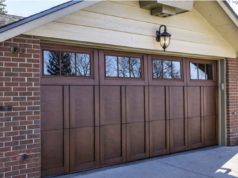Report Requires FAA to Identify Short and Long-Term Solutions to Address Local Concerns
WASHINGTON, D.C. – May 15, 2015 – (RealEstateRama) — U.S. Representative Mike Quigley (IL-05) secured language in the FY16 Transportation, Housing and Urban Development (THUD) funding bill, which passed the House Appropriations Committee this week, mandating the Federal Aviation Administration (FAA) develop short and long-term measures to mitigate excessive airplane noise experienced by local communities around O’Hare International Airport. The bill will now head to the full House of Representatives for a vote.
Yesterday, Rep. Quigley met with FAA Administrator Huerta to notify him about the progress report and continue the dialogue about ways the FAA can help alleviate community concerns.
“As an appropriator with direct oversight of the FAA, I am doing everything in my power to ensure that the FAA is not only responsive to my constituents but is also committed to finding solutions to the unprecedented level of noise pollution they’re experiencing every day,” said Rep. Quigley. “By mandating the FAA to investigate the increased noise that has resulted from the O’Hare Modernization Program and report to Congress on potential measures to alleviate local concerns, I’m holding the FAA accountable to Chicagoans who live beneath the flight paths of the world’s busiest airport. Administrator Huerta, and I had a productive meeting about the issues local communities are facing and look forward to continuing the dialogue to find both short and long-term solutions for the people in my district.”
Rep. Quigley, a member of the House Appropriations Committee, included a requirement for the FAA to submit a progress report on long and short-term O’Hare International Airport mitigation efforts. The language, included in the House Appropriations Committee’s Transportation, Housing and Urban Development funding bill for 2016, requires the FAA to report to Rep. Quigley and the Appropriations Committee 90 days after the House approves the bill.
The language Rep. Quigley, the only Illinois member of the House Appropriations Committee, secured in the Transportation, Housing and Urban Development funding bill for 2016 states: “The Committee directs the FAA to continue to work expeditiously to identify appropriate short and long term mitigation measures to address local concerns that have been raised as a result of the O’Hare Modernization Program at Chicago O’Hare International Airport. The FAA is expected to provide a progress report on these measures to the Committee within 90 days of enactment of this Act.”
In April, Quigley announced the Office of Management and Budget (OMB) green-lighted a study the FAA will use to determine if the current 65 decibel Day-Night Average Sound Level (DNL) metric used to measure acceptable airplane noise should be changed to address increased noise pollution. The announcement followed a commitment Rep. Quigley secured from OMB Director Shaun Donovan to expedite OMB’s approval of the study. The current 65 DNL metric is outdated and no longer a reliable measure of the real impact of air traffic noise. The 65 DNL has been in place since the 1970s when air traffic volume was far lower than it is today. Since the 65 DNL was introduced, airplane traffic has increased dramatically and is forecasted to continue to do so over the next two decades. The FAA’s DNL study will allow for the establishment of a more reasonable standard and help more individuals qualify for the O’Hare Residential Sound Insulation Program (RSIP).
O’Hare International Airport became a part of Illinois’ Fifth Congressional District in January 2013. Since then, Rep. Quigley has met continuously with neighborhood organizations and aviation officials to discuss solutions to increased noise pollution resulting from the O’Hare Modernization Program (OMP). In a March hearing of Appropriations Transportation, Housing and Urban Development, and Related Agencies (THUD) Subcommittee, Rep. Quigley pressed FAA Administrator Huerta on the need to lower the 65 DNL metric in the long term but insisted that the FAA work with the Chicago Department of Aviation (CDA) to provide immediate short term solutions for the communities affected by the O’Hare Modernization Program. In November, Rep. Quigley, along with Reps. Duckworth and Schakowsky, urged CDA to improve the O’Hare noise complaint process by creating a dedicated O’Hare noise complaint line, manned by personnel versed on the noise issue to begin to get a truly accurate count of constituent complaints. He also pushed the Federal Aviation Administration (FAA) to conduct new public hearings and issue a new environmental impact study (EIS) of the OMP in response to questions raised over the hearing process and noise levels that exceeded expectations. He also repeatedly called on the FAA to change the outdated noise metric that could allow more homeowners and businesses to qualify for soundproofing programs. In Congress, Rep. Quigley helped create the Quiet Skies Caucus and introduced the Silent Skies Act to help combat aircraft noise on a national level.






